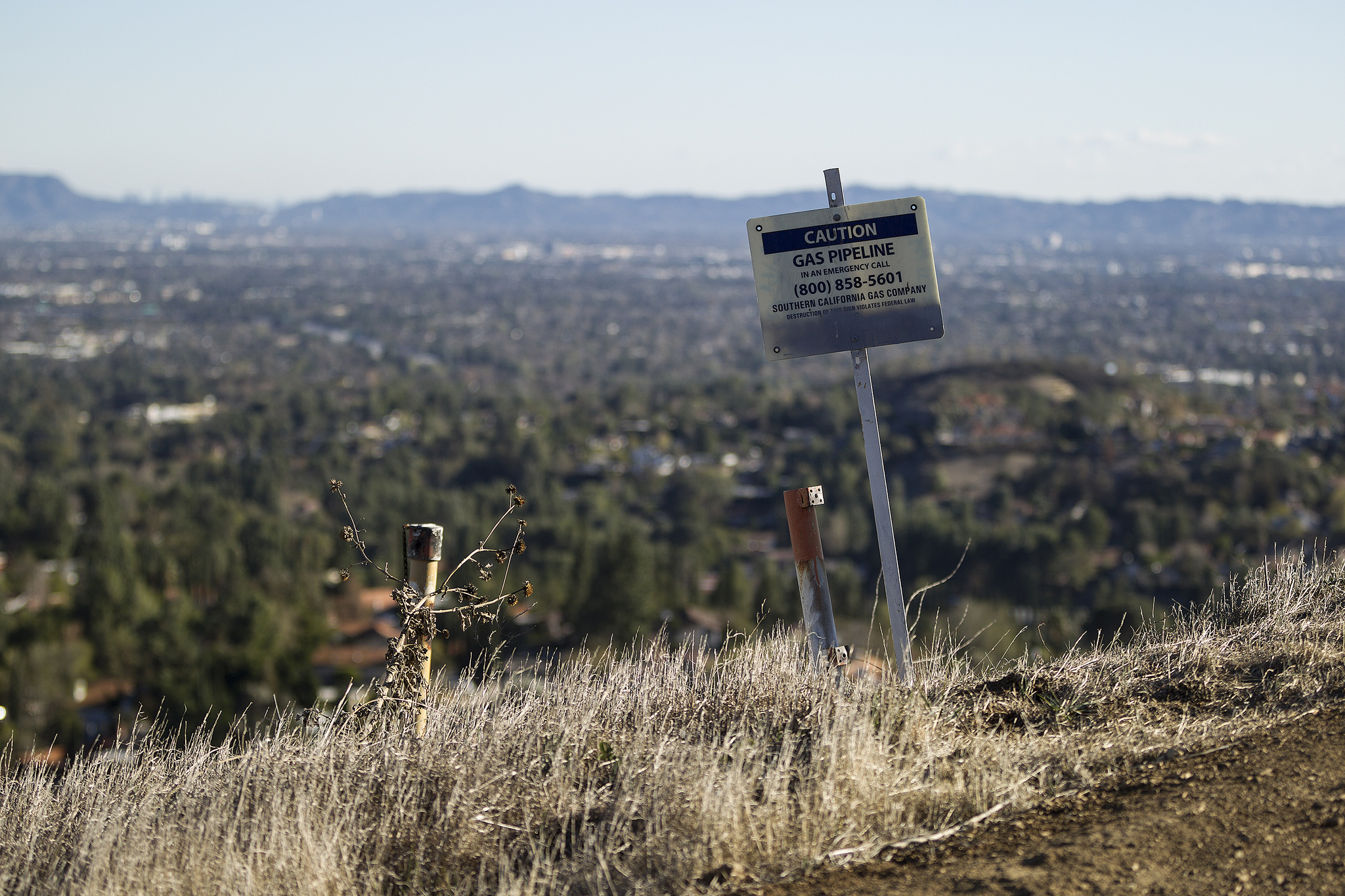Leaking Gas Well in California is a Climate ‘Disaster’
Some are calling a methane leak in Southern California the worst environmental disaster since the BP oil spill. Since October, tens of thousands of metric tons of methane gas have been leaking from a well at Southern California Gas Company’s Aliso Canyon facility. By some estimates, that has increased the state’s methane emissions by 25 percent.
That’s bad news for the climate: Methane is 80 times more potent as a greenhouse gas than carbon dioxide in the first two decades after it’s released into the atmosphere.
The methane leak has been hard on the neighboring community as well. Thousands of residents who live nearby have been evacuated. Many say they’ve had breathing problems as a result of the leak.
LISTEN: “Your Environment Update for January 6, 2016”
“They keep wanting to call this a leak, like it’s a small thing that’s fixable, but it’s not,” says R. Rex Parris, an attorney representing some of the evacuated residents. “The well blew out. And the reason it blew out: It was a 70-year-old well. They had removed all of the safety features back in 1979, although they reported to the state that they repaired the safety features.”
The environmental implications of this leak could be enormous. Parris says every month, the leaking well has the same impact as six coal-fired power plants operating for 20 years.
“It’s a huge impact. In many respects, though, there is a silver lining to this. Just as our highways or bridges are falling apart, and people see it and are aware of it, the infrastructure in the oil industry is also falling apart. This is the first of what we think are going to be many of these situations to come throughout the country.”
Parris and his clients want the site closed. SoCalGas says it hopes to repair the leak by March.
Pennsylvania Set to Get New Oil and Gas Regulations
On Wednesday, the Department of Environmental Protection sent a re-write of Pennsylvania’s oil and gas regulations to a state board. It’s one of the last hurdles before the state implements what could be the biggest changes to these regulations since the 1980s.
The changes were mandated by Act 13 of 2012, signed by then-Gov. Tom Corbett, and have taken nearly four years to complete.
Scott Perry, the DEP’s Deputy Secretary for Oil and Gas Management, said the package of rules was more comprehensive than others the state has implemented since the fracking boom began a decade ago. Those include the 2010 limits on the discharge of oil and gas wastewater into rivers and streams, and the 2011 revisions to the state’s well construction standards.
“Those rules are incredibly important, but they certainly do not have the same breadth of scope of the revisions we’ve made,” Perry says.
Among the changes is a requirement for companies to do more pre-drill testing to look for old abandoned wells that could allow pollution to migrate when a well is drilled. The rules also ban on-site storage pits for oil and gas wastewater. Drillers would have to use tanks and centralized impoundments.
Many of the regulations set requirements that drillers are already meeting. But John Walliser, a member of the Pennsylvania Environmental Council who sits on a state board that reviewed the new rules, says they’re needed.
“You need that baseline to ensure someone’s complying with the same set of rules and everyone’s undertaking the same set of precautions,” Walliser says.
The industry says the new rules will be so expensive they will cost jobs. In a statement, Marcellus Shale Coalition president Dave Spigelmyer said the cost of compliance could rise to $2 billion, “without providing meaningful environmental benefits.”
The DEP disagrees. It released compliance cost estimates, which put the initial costs between $41 and $73 million, and yearly costs at $5 to $31 million.
The finalized rule now goes to the Environmental Quality Board, which will have a chance to accept or reject them. After that, it goes to the state’s Independent Regulatory Review Commission. The new rule could be implemented this summer.
Reporting by Reid Frazier

